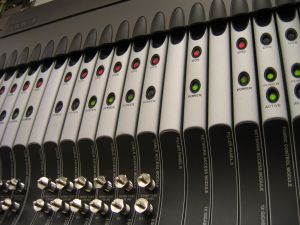

Novell helped OOXML and Hyper-V after Microsoft had bribed Novell's management (hundreds of millions of dollars which mostly benefited people like Ron Hovsepian and Jeff Jaffe, who currently ruins the Web) and later scooped Novell's patents, too (via CPTN).
"Then again, SUSE has been endorsing and advertising Microsoft for almost seven years, having purged from its Web site any material critical of Microsoft (this mass destruction began in 2006, very shortly after the patent deal with Microsoft)."As we noted last year and earlier this year, much of the force for UEFI restricted boot in Linux can be attributed to developers from Novell [1, 2] (some no longer work directly on SUSE or OpenSUSE) and now that Microosft Linux (SUSE) has a new Service Pack, it is prominently marketed as sucking Microsoft's dick, to paraphrase Linus Torvalds on such matters. To quote Michael Larabel, who is by no means hostile towards SUSE, the "Nuremberg-based company calls this the first enterprise Linux distribution integrating UEFI Secure Boot support."
Ubuntu and Fedora have already made releases for this and suffered delays as well. To focus on restricted boot in this case is merely to endorse or even advertise what Microsoft is doing. Then again, SUSE has been endorsing and advertising Microsoft for almost seven years, having purged from its Web site any material critical of Microsoft (this mass destruction began in 2006, very shortly after the patent deal with Microsoft).
Here is another take on the news, among several from longtime Novell/SUSE apologists [1, 2] and a corresponding press release from the Microsoft-funded SUSE.
"That is a rhetorical question because SUSE is the de facto Microsoft Linux and everyone should avoid it."Sam Varghese, the "Open Sauce" writer at IT Wire and a longtime Novell sceptic, warns that SUSE now helps make restricted boot compulsory on servers. He asks: "Does the Germany-based GNU/Linux company SUSE know something about Microsoft's secure boot plans that other Linux companies do not?"
That is a rhetorical question because SUSE is the de facto Microsoft Linux and everyone should avoid it. SUSE uses euphemisms like "secure boot" and "service pack" (secure pack?) to market what is essentially a Microsoft-taxed GNU/Linux distribution which Microsoft profits from and technically controls,
Varghese correctly notes that "[g]iven Windows 8 desktop take-up by businesss that can only be described as a disaster, one would have thought that Microsoft would think twice about making lockout mechanisms such as secure boot compulsory for its server range."
But those lockout mechanisms are controlled by Microsoft keys, so they are only effective at blocking Microsoft's competition, not Microsoft products. UEFI deserves more antitrust complaints and SUSE continues to deserve a stern objection, or a boycott. ⬆